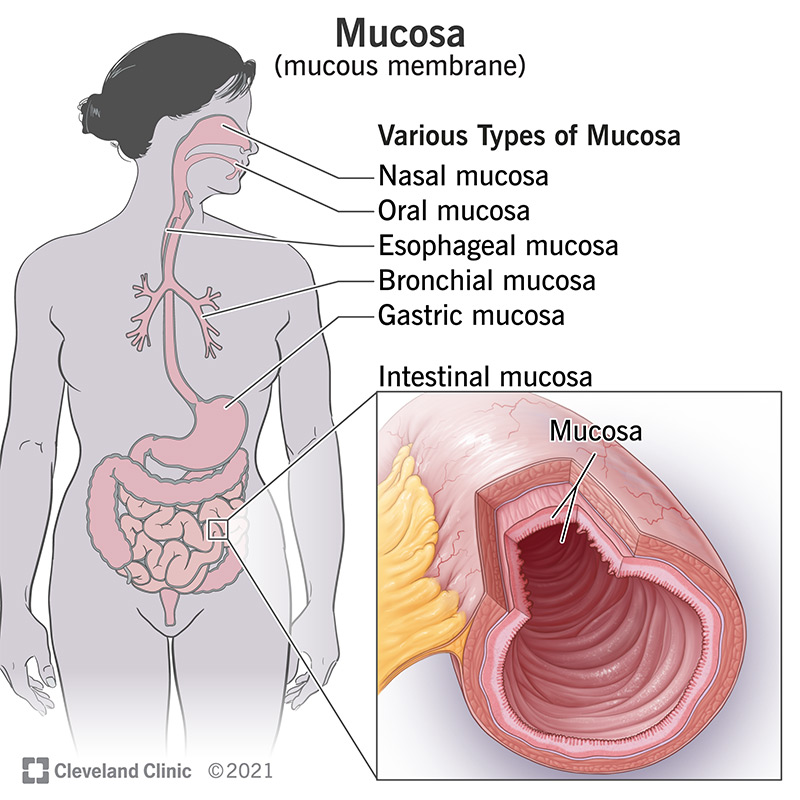
Mucous membranes are found throughout your body, in your digestive system, respiratory system and reproductive systems, as well as your sensory organs.
The mucosa is designed to defend against abrasion and infection, but sometimes things can breach its defenses. Viruses, fungi and bacteria can cause mucosal disease in your mouth and genitals, and sometimes your gastrointestinal tract VSports在线直播.
When something breaches your mucosa, it produces an immune response. This is what happens when your respiratory system produces extra mucus to fight a cold or an allergen. It’s also what’s happening when your organs become inflamed. Inflammation is a healthy response to infection and injury, but it can produce uncomfortable symptoms.
Sometimes autoimmune diseases produce an inappropriate immune response in the mucosa. They cause your body to attack healthy cells as pathogens, leading to chronic inflammation. Examples affecting the mucosa include:
If inflammation continues for a long time, it may begin to cause fibrosis, a kind of scarring of the tissue. This is also called tissue remodeling. Remodeling of the mucosa is associated with several progressive conditions, including:
Advertisement
Sometimes the mucosa produces abnormal tissue growths as a result of inflammation and tissue remodeling, malignancy or other factors. Abnormal tissue growths, called polyps, are usually benign, but sometimes they're precancerous.
Other diseases can cause the mucosa to malfunction in some way.
When everything is functioning as it should, your mucous membranes protect you, providing a first line of defense against infection and abrasion. But chronic, persistent inflammation can begin to break down this protective barrier and overspend the immune cells in your mucosa, leaving your immune system weaker. To protect your mucosa, take care of chronic inflammatory conditions if you can.
Mucous membranes exist all over your body, lining your body’s canals as well as many of its internal organs. The mucosa is designed to protect these organs and canals from external and internal irritants. It does this with its physical defense barrier and lubricating mucus, and also with inflammatory cells that attack pathogens and help heal injured tissue. Inflammation is an important part of your mucosa’s immune response, but chronic inflammation can wear it down and cause abnormal tissue growth. If you have symptoms of chronic inflammation, consult your healthcare provider about how you can reduce it.
Advertisement
Cleveland Clinic’s primary care providers offer lifelong medical care. From sinus infections and high blood pressure to preventive screening, we’re here for you.

Last reviewed on 07/24/2022.
Learn more about the Health Library and our editorial process.